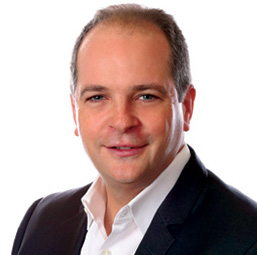ResMed calls demand ‘extraordinary, unprecedented’
By Liz Beaulieu, Editor
Updated 9:49 AM CDT, Fri August 13, 2021
 SAN DIEGO – ResMed expects to post $300 million to $350 million in additional revenue in its fiscal year 2022 as a result of a voluntary recall of certain Philips CPAP/BiLevel and ventilator devices, company officials said during an Aug. 5 conference call to discuss recent financial results.
SAN DIEGO – ResMed expects to post $300 million to $350 million in additional revenue in its fiscal year 2022 as a result of a voluntary recall of certain Philips CPAP/BiLevel and ventilator devices, company officials said during an Aug. 5 conference call to discuss recent financial results.
In the fourth quarter of its fiscal year 2021, ResMed saw a 30% increase in device sales in the U.S., Canada and Latin America.
“We estimate that we generated an incremental device revenue of approximately $60 million to $70 million in the June quarter due to our competitor’s recall,” said Mick Farrell, CEO.
ResMed saw a 5% increase in mask and accessory sales in the fourth quarter in the U.S., Canada and Latin America.
The guidance of $300 million to $350 million in additional revenue takes into account supply chain constraints, which Farrell expects to continue throughout its fiscal year 2022.
“We have already partnered with our global supply chain team, both internal and external, and although we expect the current quarter and the December 2021 quarter will be the most supply constrained, we do see room for expansion of supply ahead,” he said. “We expect that the flow of ResMed products will accelerate significantly during the March 2022 and the June 2022 quarters.”
The competition for parts is so stiff, Farrell says he himself has been calling suppliers and talking to their CEOs to make appeals on ResMed’s behalf.
“(I’m) saying, ‘Look, this component can go into a cell phone or a car, or it can go into a medical device that literally gives someone the gift of breath,’” he said. “’Please prioritize our part of the supply chain,’ and it’s been working those last seven weeks.”
To increase the amount of product in the market, ResMed has also accelerated the launch of its AirSense 11 CPAP device to the current quarter, Farrell says.
“The bottom line is that we’re going to be selling both the AirSense 10 and AirSense 11 in parallel for quite some time, as we meet this extraordinary market demand over the coming fiscal year,” he said.
Though much of the focus of the Philips recall has been on the near-term, ResMed sees “a clear opportunity to increase our long-term sustainable market share,” Farrell says.
“Our experience over the last seven-plus years since we launched our online platform called Air Solutions at scale is that when providers adopt and embrace our suite of digital health solutions, they can lower their own labor costs by over 50%,” he said. “They can drive their own patient adherence rates up to over 87% and beyond. After doing that, they don't want to go back.”
Other highlights from the call:
- Farrell on whether increased device sales will mean increase mask sales: “So they’re designed to work together very well and they are better together. So, there is a better uptake of ResMed masks with ResMed devices. And certainly, it's going through a channel where there's a salesperson who's providing both of them and so there's some opportunities on both the sort of clinical and technical side, as well as the commercial and execution side, for some incremental growth. I won't quantify that for you. But I do think there is some upside.”
- Farrell on where ResMed is focusing its supply of CPAP devices: “There’s a lot of demand for new patient flow and that’s where we’re laser focused. Frankly, it’s (Philips’) job to focus on the replacement or recall, and we’re focused on the new patients – both together will create unprecedented demand.”
Comments